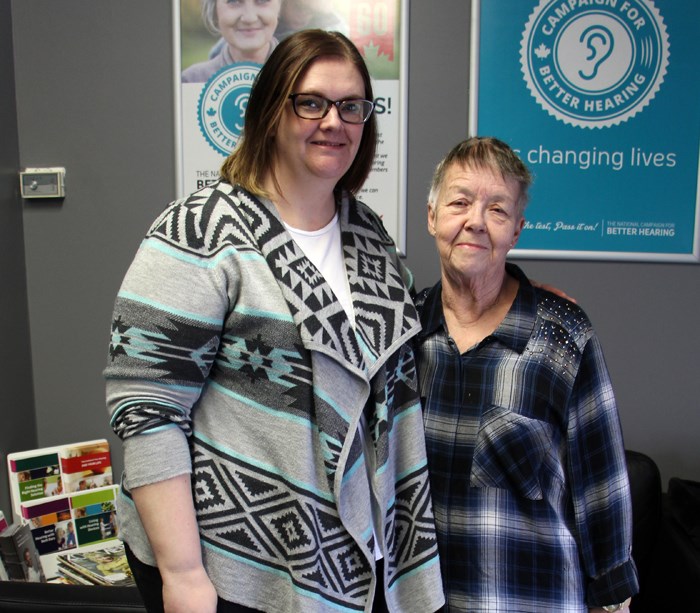Hearing loss is something that affects millions of seniors, but for some it might be a challenge to actually do something about it. A local hearing aid clinic is part of a program to help deal with that problem, helping low-income seniors apply to get free hearing aids.
The Campaign for Better Hearing, a program through Hearing Life Canada has two parts, one encouraging seniors to get tested, and the other giving low-income seniors the chance to get their hearing aids paid for, explains Jonical Willett of Advance Audiology Hearing Aid Clinic.
The goal of the company is to test every Canadian over 60 for hearing lost, and Willett believes that having a program like this makes it easier to get people to have a hearing test. She admits that for many people, they might not believe there’s a hearing loss, but they could get tested anyway because it raises money for someone else who does have one.
“For me, raising the money is really simple, you just have to get tested, you don’t even have to have a hearing loss. For example, when spouses come in, they know one of them has a hearing loss, so they want to get them tested, but we talk the other one into having a hearing test too, because then we get to donate $8 instead of $4.”
They are not limited to testing people over 60, Willett says, and will test anyone over 18. This is the only hearing clinic that is part of the program in Saskatchewan.
Willett believes it’s important for people to get tested because they could benefit from a hearing aid at the onset of hearing loss, and there are also conditions linked to untreated hearing loss, such as anxiety, social isolation, depression and cognitive decline. With the added incentive of helping people get hearing aids for those on a low income, she wants to see more seniors getting tested. The test itself is free.
The choice of recipient is based on need, Willett says, and people don’t have to re-apply in subsequent years if their application doesn’t get approved.
Sheila Fabrick is one of the two seniors from the Yorkton area who received a hearing aid through the program. She says that it was great to be part of the program, and now she can hear her coworkers and people on the phone.
The most important thing for her is that she can now hear her family.
“I have two daughters that are very soft-spoken, and I have a great-granddaughter who almost whispers, so I can hear them.”
In 2016, 134 hearing aids were given away, and Willet says their goal for 2017 is to raise $300,000 nationally. The hearing aids given away through the program tend to be mid-range models, priced in the $3-4,000 range. Fabrick needed two, and hers would have cost $5,000 total.



